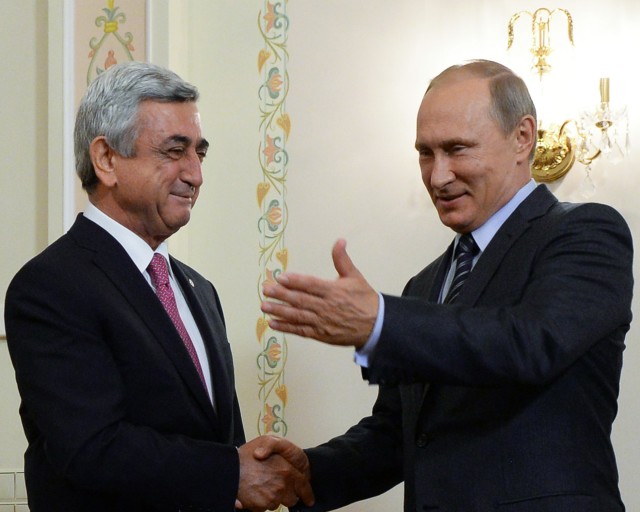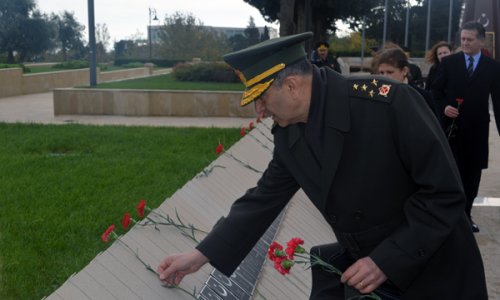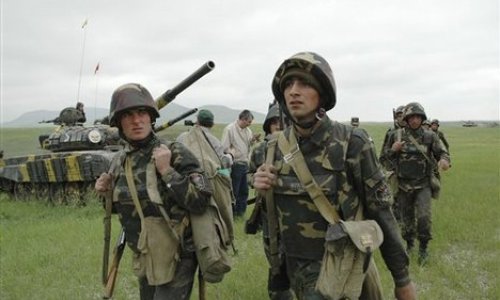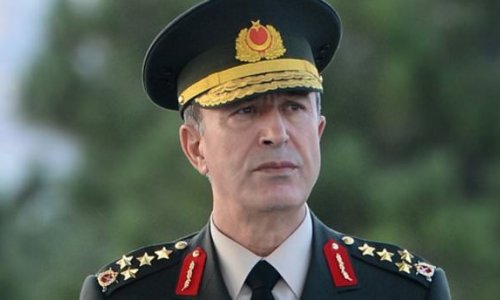While the Iran nuclear agreement has undoubtedly changed the dynamics of the Middle East, few perhaps have considered how such a dramatic deal will affect the nearby Caucasus region, specifically Armenia. With Western sanctions soon to be lifted, Armenia has the potential to become a transit country for Iranian oil and natural gas destined for ports in Georgia. But emerging relations between Tehran and Yerevan on energy and infrastructure projects is the last thing Armenia's major patron — Russia — wants, especially if it is excluded from controlling shares in them. To this end, Russia has been increasing its economic presence in Armenia, while also pushing influential Armenians living in Russia to enter Armenian politics.
Thwarting Armenia's capacity as an oil transit country will further isolate it, as new regional energy projects continue to bypass Yerevan. But this is exactly what Moscow wants — to have Armenia dependent on Russia and to keep the former Soviet country firmly in its sphere of influence and away from the West. And, in the long run, Armenians based in Russia could become important contenders in Armenian politics, while also serving Moscow's enduring interests.
Analysis
Surprisingly, despite being in a prime location to act as a transit state in the Caucasus region, Armenia is almost completely isolated. Since the fall of the Soviet Union in 1991, it has been stuck between hostile countries, namely Azerbaijan, which fought a war with Armenia over the Nagorno-Karabakh region, and Turkey, which supported Azerbaijan in the conflict. To buffer itself, Armenia has come to rely on Russian economic and military support, coming primarily through Georgia. Meanwhile to the south, Iran, largely because of sanctions, failed to become Armenia's alternative trade and energy partner.
Another Alternative?
Yet an agreement between the six world powers (France, Russia, the United States, the United Kingdom, China and Germany) and Iran paved the way for Tehran to become more politically and economically assertive in the region. Tehran began actively courting Armenia, with Iranian government officials reaching out to their Armenian counterparts, especially in the economic and energy sectors. Iran considers Armenia vital as a potential export conduit for Iranian energy products en route to Georgia's Black Sea ports of Batumi and Poti and to Europe. Exporting energy through Turkey would be more convenient for Iran, but difficult relations between the countries on issues including inherently incompatible visions of how to end the Syrian civil war has ultimately made the Armenian route more viable. So far, there have been talks of building a $3.7 billion-railway between Armenia and Iran.
But Russia is fiercely opposed to the project, and recent hints reveal that Tehran is now alternatively considering building railway infrastructure (costing only $400 million) through Azerbaijan — Armenia's foe — to Georgia. This so-called North-South transport corridor from Iran to Russia's Baltic ports discussed between Iran and Azerbaijan currently takes precedence over any plans for transit through Armenia. Again, regional powers are circumventing Armenia to get their exports to the European market, in turn forcing Armenia to depend on Russia.
Railway construction is not the only project being blocked by Russia. On Aug. 9, Armenia and Iran signed an agreement to construct a third high-voltage power line on Armenian soil connecting the two countries. However, as Armenian media sources claim, Russian natural gas giant Gazprom has already obtained the rights to use the planned power line for energy exports. Gazprom, together with Russian company Tashir Group, dominates Armenia's distribution networks for domestic natural gas and electricity. In January 2014, Gazprom acquired an additional 20 percent of the Armenian natural gas monopoly and in June 2015 took over ownership of the pipeline section that takes Armenian natural gas to the Iranian border.
The Kremlin had hoped to only influence Yerevan economically with Russian investments but has recently tried to pressure Armenian politics through influential Russia-based Armenians. Of note is businessman Samvel Karapetian, who has an estimated net worth of almost $4.8 billion and owns Tashir Group — which bought the economically important Electric Networks of Armenia (formerly owned by RAO UES). Moreover, another Russia-based Armenian and current president of the Union of Armenians in Russia, Ara Abrahamian, announced Oct. 14 that he will establish his own party to participate in Armenia's 2017 parliamentary elections. Abrahamian's chances to set up a serious political force to undermine Armenian President Serzh Sarkisian's government in the elections are low. Still, recent reports show that he will align himself with Karapetian. Of course, the Kremlin does not wish to openly confront Sarkisian's government, but it will use Karapetian and Abrahamian to influence Yerevan's policies, which at times, as in the case with Iran, go against Moscow's calculations.
Bucking Russia's Influence
Armenia's relationship with Russia was tested this year, despite that Armenia joined Russia's Eurasian Union and received financial assistance and weapons deliveries from Moscow. In January, a Russian soldier killed an entire Armenian family in Giumri. Moscow eventually allowed the Armenian government to conduct its own trial of the soldier, but not before igniting protests across Armenia and raising anti-Russia sentiments.
Protests later sprang up in Yerevan against a price hike for electricity demanded by a Russia company. Although the protesters claimed their discontent was only with social issues, Russian politicians were visibly worried that the protest would turn to overall discontent with Armenia's pro-Russia stance. Armenia's economy, hurt by Russia's economic decline in the face of Western sanctions, also declined, which has further enflamed domestic anger. Moreover, Armenia and the European Union started to work on a new cooperation agreement, which could also cause some problems with Moscow by complicating its standoff with the West.
Empowering Russia-based Armenian politicians amenable to Moscow's interests would certainly benefit Russia's negotiations with Sarkisian's government, especially on another, more important issue: Nagorno-Karabakh. Stratfor recently noted numerous efforts on Azerbaijan's part to change an existing status quo regarding the Nagorno-Karabakh conflict. Usually, small-scale clashes along the contact line that define the conflict result in mostly Armenian casualties and loss of military equipment. However, Yerevan suspects that a recent Russian-Azerbaijani diplomatic rapprochement might lead Russia to allegedly agree to a possible change of this status quo. Several theories have been propounded, from withdrawing Armenian forces from the seven regions adjacent to Nagorno-Karabakh, to the placement of Collective Security Treaty Organization (CSTO) — the Russia-led military bloc — peacekeepers.
But Armenia's political elite, predominantly made up of politicians originating from Nagorno-Karabakh (like Sarkisian), has staunchly objected to any of these scenarios. Thus it may not be entirely coincidental that Yerevan, following the alleged Russian-Azerbaijani talks, decided to ramp up its forces along the contact line as well as to overtly criticize the CSTO. Moreover, Armenian leaders even threatened that in case of an Azerbaijani military attack, Yerevan would consider recognizing Nagorno-Karabakh as an independent state, which would make placing any peacekeepers there virtually impossible.
The Kremlin's decision to overtly support Russia-based Armenians is a direct response to Moscow's challenges with the Armenian government. More important, Russia's overall strategy of isolating the former Soviet state to keep it dependent is part of its grand design to maintain a grip on the entire former Soviet periphery. Since the collapse of the pro-Russia government in Ukraine in 2014 and the conflicts and regional political maneuvers that followed, Russia has feared the loss of this sphere of influence to the West. Hence, losing clout in Armenia, even to a non-Western country such as Iran, let alone Europe, risks putting another dent in Russia's weakened buffer zone.
So in the long term, pro-Russia figures such as Karapetian and Abrahamian are likely to play important role in Armenian politics. The influence of Russian companies in Armenia's energy sector will have equally strategic repercussions, limiting the country's ability to become a transit country for Iranian exports and increasing its dependence on Russia.
(Stratfor)
www.ann.az
Follow us !











